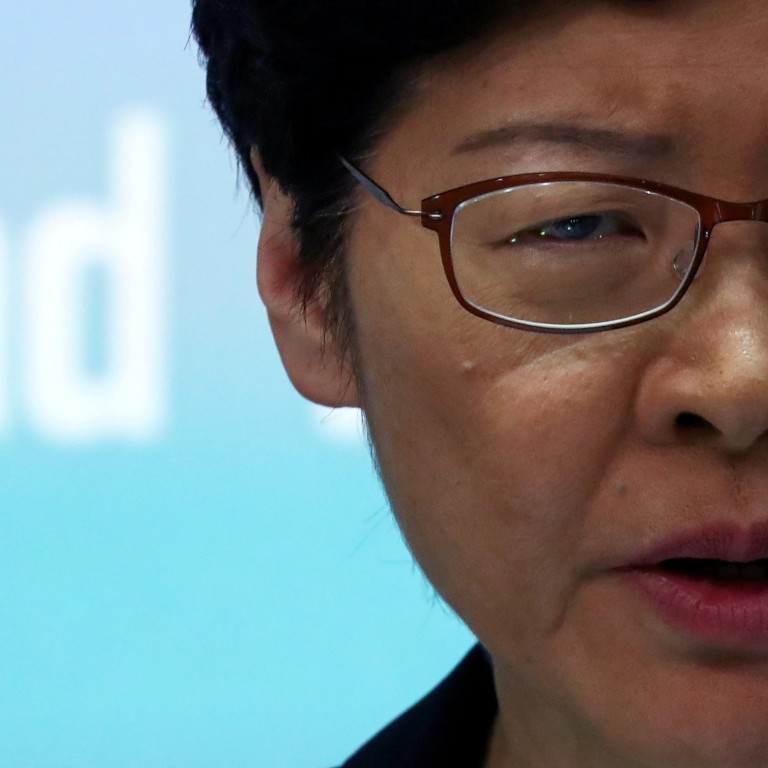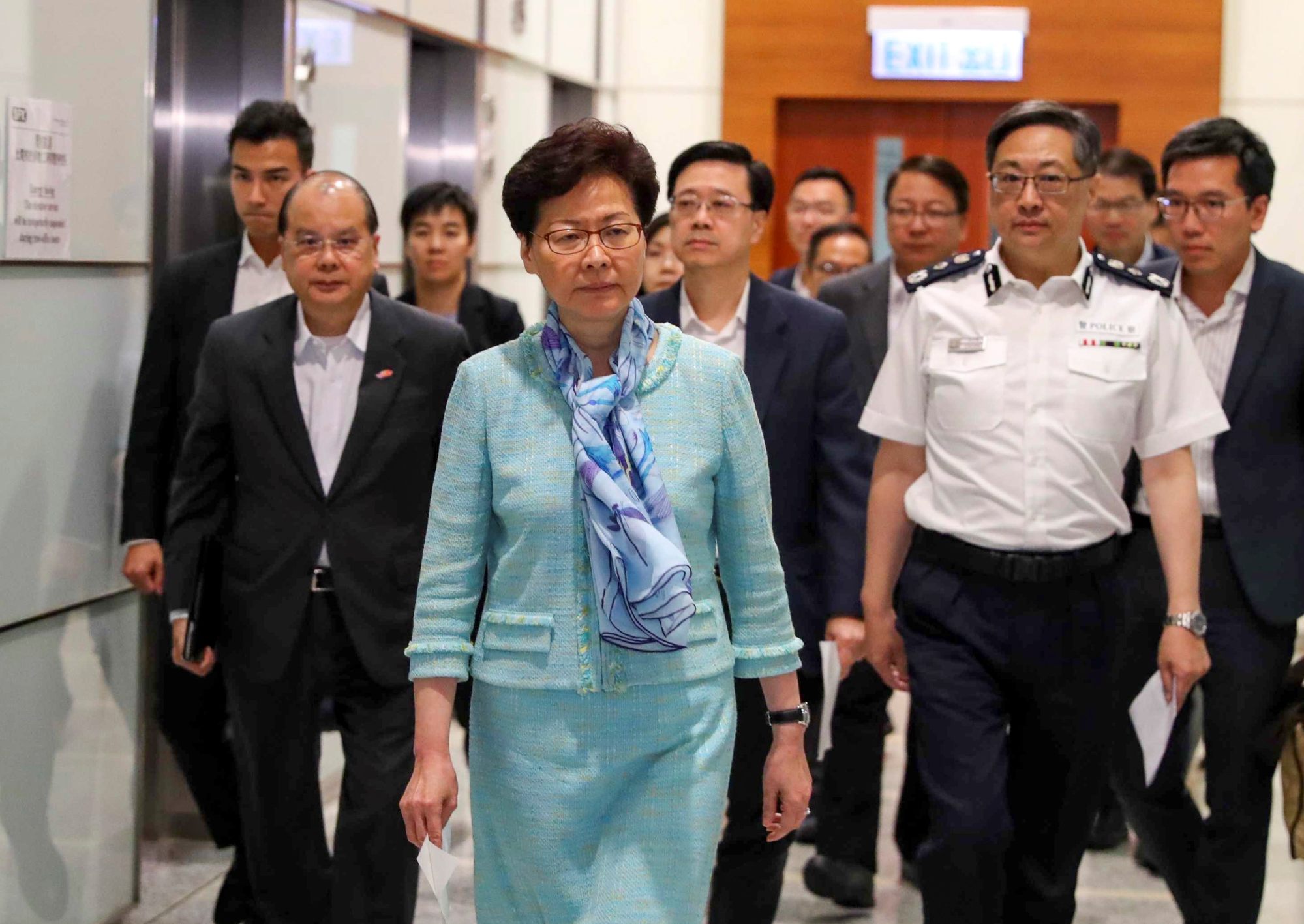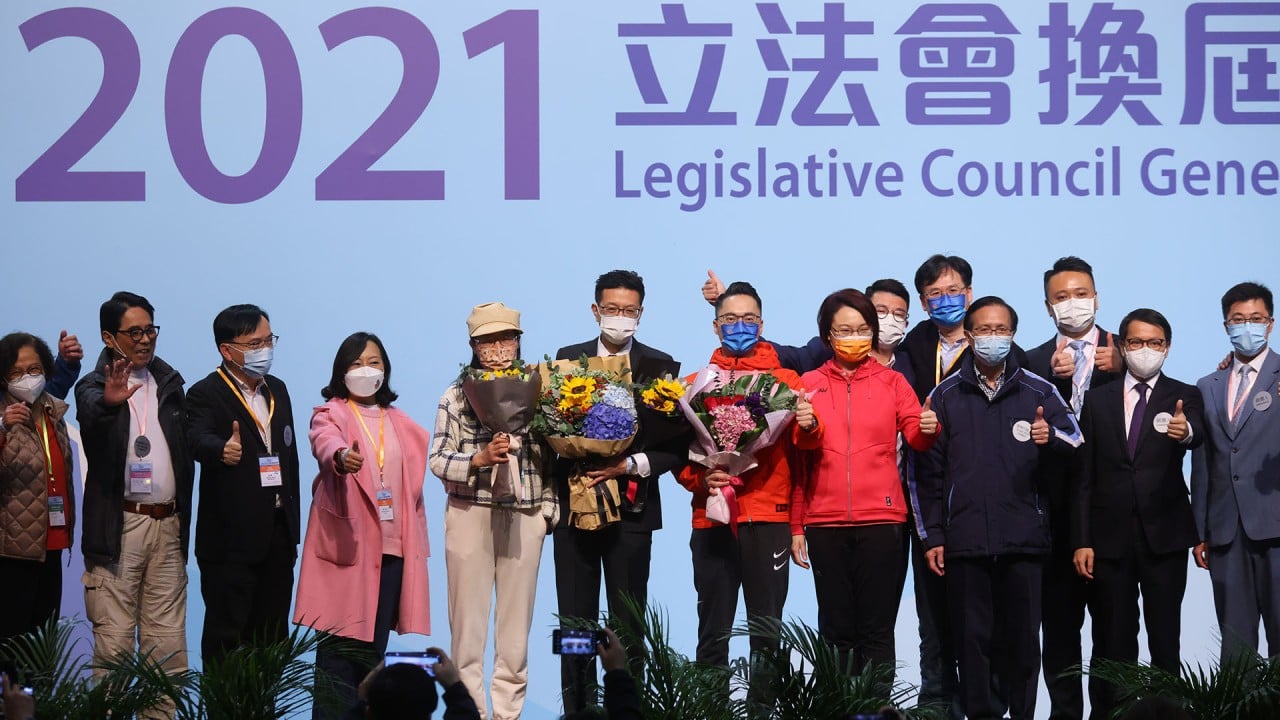
The administration that changed Hong Kong forever
- The violent protests over Carrie Lam’s ill-fated fugitive offenders bill, and Beijing’s subsequent measures to assert its overall jurisdiction have caused a sea change in Hong Kong
- The next chief executive bears the twin responsibilities of safeguarding national security and reviving global linkages and dynamism to recharge Hong Kong
Beijing’s preference for a candidate with proven administrative ability and policy continuity was obvious, as two out of four chief executives thus far came from the elite administrative cadre of the Hong Kong civil service.
Strong administrative capabilities are a plus, but also a double-edged sword. Skill in manipulating the bureaucratic system gave Lam an edge when it came to using ploys like setting up a task force or a statutory committee of inquiry to keep controversial issues on the back burner or deflect pressure.
In 2019, Hong Kong had already entered into more than a dozen bilateral arrangements for mutual assistance in the rendition of fugitive offenders with the United Kingdom, the United States and other Western countries.

There were strong calls from the Legislative Council for an early agreement with the mainland authorities to facilitate the rendition of fugitive offenders. Differences in the criminal justice systems of the mainland and Hong Kong prevented an agreement from being reached. The issue was put on the back burner after the political uproar subsided.
It was courageous of Lam to attempt to resolve this long-outstanding impasse. A solution would have been desirable, but was not fundamental to the smooth running of Hong Kong.
Admissions of past failings a good sign for Hong Kong’s future
The national security law brought an immediate end to violence in Hong Kong. The new laws on oath-taking and the “patriots only” electoral reform succeeded in ridding the legislature and the district councils of anti-China elements who had been drumming up disruption.
However, Beijing did not take any action to put this into effect until the tumultuous events of 2019. They galvanised Beijing into adopting concrete measures to assert its overall jurisdiction, and those actions inaugurated a new era in the implementation of “one country, two systems” in Hong Kong.
If Hong Kong is to continue to contribute to the well-being of the country by leveraging its unique, rules-based and international environment, the next chief executive must be able to bolster the city’s strengths as an international trading, business and financial hub, an agent for the continuous modernisation and opening up of China to the world, and a marketplace for the cross-fertilisation of Chinese and Western cultures.
He bears the heavy, twin responsibilities of safeguarding national security and reviving Hong Kong’s global linkages and dynamism. With a more collaborative legislature and the threat of Covid-19 receding, the conditions are ripe for Lee to recharge Hong Kong.
Regina Ip Lau Suk-yee is a lawmaker and chairwoman of the New People’s Party


